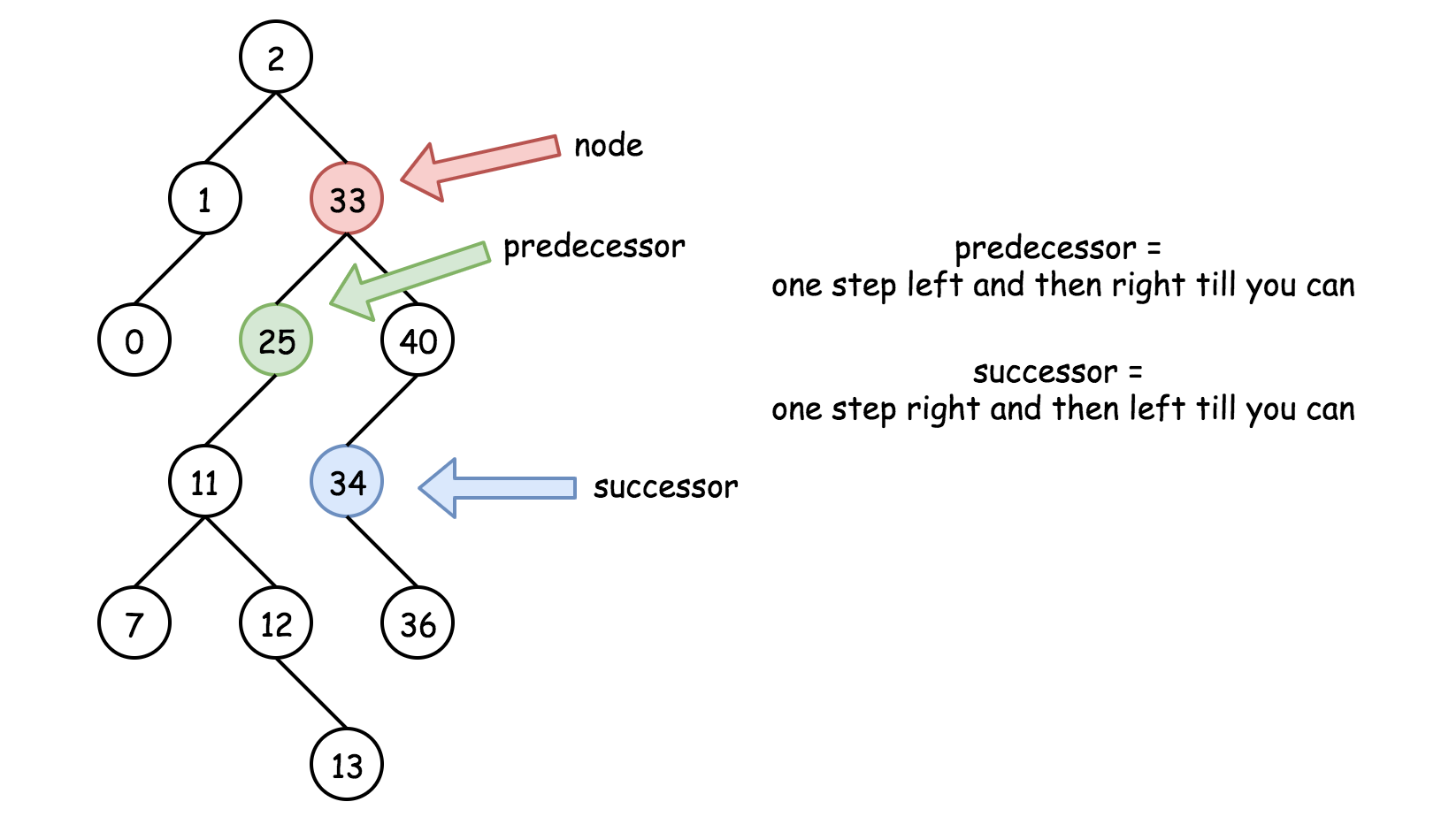Problem
Given a root node reference of a BST and a key, delete the node with the given key in the BST. Return the root node reference (possibly updated) of the BST.
Basically, the deletion can be divided into two stages:
Search for a node to remove.
If the node is found, delete the node.
Solution 二叉搜索树(BST)的递增排序的访问顺序是中序遍历。(Left -> Root -> Right)
因此二叉搜索树的前驱者(小于当前节点的最大值)和继任者(大于当前节点的最小值)对于修改二叉树至关重要。
辅助方法getPredecessor() 和getSuccessor() 可以获得前驱者和继任者的值。
deleteNode() 方法搜索key。如果当前值大于搜索值则搜索并修改 其左子节点,反之搜索并修改 右子节点。(由于要修改,因此向下递归子节点时需要将返回的结果传入该子节点。)
当搜索值等于当前值时,存在三种情况:
最后返回修改后的根节点即可。
Code 1 2 3 4 5 6 7 8 9 10 11 12 13 14 15 16 17 18 19 20 21 22 23 24 25 26 27 28 29 30 31 32 33 34 35 36 37 38 39 40 41 42 43 44 45 46 47 48 49 50 51 class Solution { public TreeNode deleteNode (TreeNode root, int key) { if (root == null ) return null ; if (root.val > key) root.left = deleteNode(root.left, key); else if (root.val < key) root.right = deleteNode(root.right, key); else { if (root.right != null ){ root.val = getSuccessor(root); root.right = deleteNode(root.right, root.val); } else if (root.left != null ){ root.val = getPredecessor(root); root.left = deleteNode(root.left, root.val); } else { root = null ; } } return root; } private int getSuccessor (TreeNode root) { root = root.right; while (root.left != null ){ root = root.left; } return root.val; } private int getPredecessor (TreeNode root) { root = root.left; while (root.right != null ){ root = root.right; } return root.val; } }

